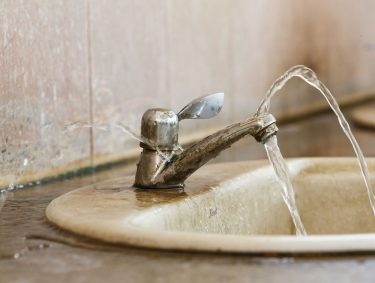What are the main types of water heaters ?
Would you like to install a domestic hot water system in your home, but don’t know which one to choose?
Among the multitude of existing water heaters, not all use the same energy.
To help you choose the most suitable one for your needs, it is necessary to know how they work, their advantages and disadvantages.
Here is a comparison of the different types of water heaters.
SOMMAIRE
How does a water heater work?
A water heater is a piece of domestic or industrial equipment that produces hot water using an energy source: gas, electricity, oil or solar energy.
Also known as a domestic hot water production system, it allows hot water to be obtained quickly in a dwelling.
There are generally 2 categories of water heaters:
- hot water tank
- instantaneous water heaters
The difference between the tank and the water heater is slightly more subtle.
The water heater is in fact the equipment as a whole.
The tank, on the other hand, refers to one of the elements of the water heater, namely the tank where the water is stored.
In the case of an electric water heater, the tank is the water heater.
In contrast, the tank is only one of the elements in the case of a thermodynamic or solar water heater !
Be careful not to confuse the water heater with the boiler, even though they are essentially the same thing.
The water heater is only used to heat domestic water, whereas the boiler also provides heating.
The boiler is a 2-in-1 solution: it produces domestic hot water as well as heating your home.
Good to know, water heaters, storage tanks and boilers can be complementary equipment.
What are the main types of water heaters ?
There are 4 main sources of energy used to operate a water heater in France:
- gas
- electricity
- solar energy
- thermodynamic energy
Several criteria are decisive in choosing a water heater: the domestic hot water demands, the savings generated, the configuration of the home, the lifespan, and of course the budget.
Among the different types of water heaters, not all meet the same needs.
Here is a comparison of the different types of water heaters.
The electric water heater
The instantaneous electric water heater
As its name suggests, the instantaneous electric water heater supplies hot water immediately and on demand.
It does not have a tank, so the water is not stored.
The electric water heater works thanks to a heating body containing an electric resistance.
This resistance is generally a steatite resistance protected from the water by an enamelled steel sheath.
t is this resistance that allows the water to rise rapidly in temperature.
A dedicated power supply is often recommended as the energy required to heat the water is very high.
Thus, when you open a hot water tap, a vacuum is created in the heating body activating the switch.
The electric resistance then starts to heat up and the water is directed into the heater until it reaches the desired temperature.
The flow rate is then stabilised to maintain this temperature for delivery to the tapping points.
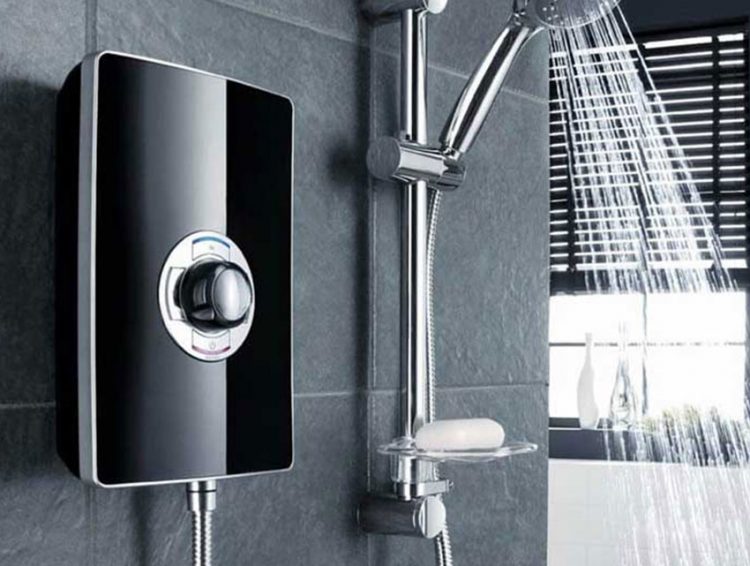
The instantaneous water heater has several advantages :
- Maintenance and installation: easy to install and maintain.
As there is no water tank, scale does not settle inside. - Size: There are different sizes available, allowing it to be installed in any room in your home.
- Lifespan: It lasts for an average of 20 years.
It is therefore superior to other models of hot water tanks or certain boilers, whose lifespan is around 10 to 15 years. - Electricity consumption: it allows you to save money and reduce your electricity bill.
Indeed, this type of water heater only consumes energy when it is in operation, i.e. when water is drawn. - Price: it costs between €130 and €500, which is quite affordable compared to the storage model (between €150 and €1,500)
This type of water heater is suitable for small homes where the need for hot water is relatively low.
It is therefore not recommended for families of more than 3 people as it does not deliver a very large quantity of DHW.
Furthermore, its installation requires a specific electrical installation.
A change of electric meter may sometimes be necessary.
The electric storage water heater
The storage water heater, also known as a hot water tank or cumulus, is found in most homes in France.
It consists of :
- a thermally insulated tank for storing water,
- an electric resistance which heats the water in the tank,
- a thermostat to maintain the right temperature
As the name suggests, this type of water heater works by accumulation, i.e. it does not heat continuously but stores a certain quantity of hot water in the tank.
Connected to the water network, the water heater will distribute the hot water stored in the tank to the various taps (mixer taps, taps, kitchen sink, shower or bath) at certain times of the day and thus cover the domestic hot water (DHW) needs of the home.
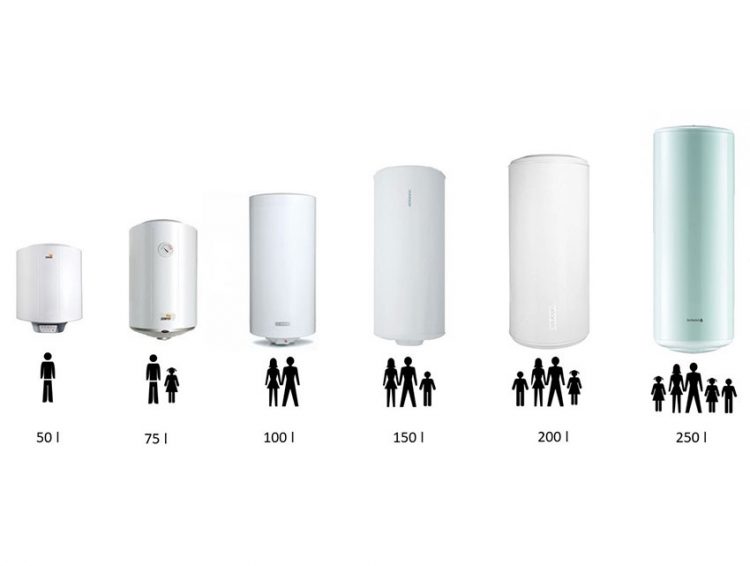
The electric water heater works on the principle of stratification: hot and cold water are separated into layers (strata) of different temperatures that do not mix.
The heated water is stored at the top of the hot water tank, while the cold water remains at the bottom.
As you use hot water, the tank fills with cold water which, as it heats up, gradually rises to the top.
The cumulus allows you to store a large quantity of hot water and therefore to quickly supply the DHW needs of large homes.
You can adapt its capacity, which can vary from 50 L to over 500 L, according to your consumption habits and your household.
The price, between 100 and 1500 euros, depends on the storage capacity and the type of resistance (soapstone or armoured resistance).
The installation of a storage water heater remains an economical solution
if it is heated during off-peak hours and the temperature is lowered to 55°C.
It heats the water between 6 and 8 hours.
Even if maintenance
of this type of water heater is minimal, an annual revision is necessary to check that it is working optimally and to avoid excessive scaling.
Do you have a project ? Contact our test bench experts
The gas water heater
The instantaneous gas water heater
The instantaneous gas water heater, also known as a bath heater, is a tankless water heater powered by gas.
It is very common in collective heating.
Like its electric counterpart, this appliance allows you to obtain domestic hot water quickly, and when you need it.
But unlike electric models, the instantaneous gas heater heats the water using a burner and not a resistance.
For safety reasons, it cannot be installed in a bathroom, a living room, or in a room ventilated by a single vent.
It must be installed in a kitchen with natural ventilation, such as a window.
Its price is higher than that of an electric water heater: expect to pay between €300 and €5000, not including installation costs, depending on its storage capacity.
However, it remains an advantageous solution given that the price of gas is lower than that of electricity.
Moreover, it is perfect as a back-up water heater or for limited DHW needs.
The heating capacity determines the maximum flow rate of the water heater, so make sure you do not undersize its capacity to avoid running out of hot water.
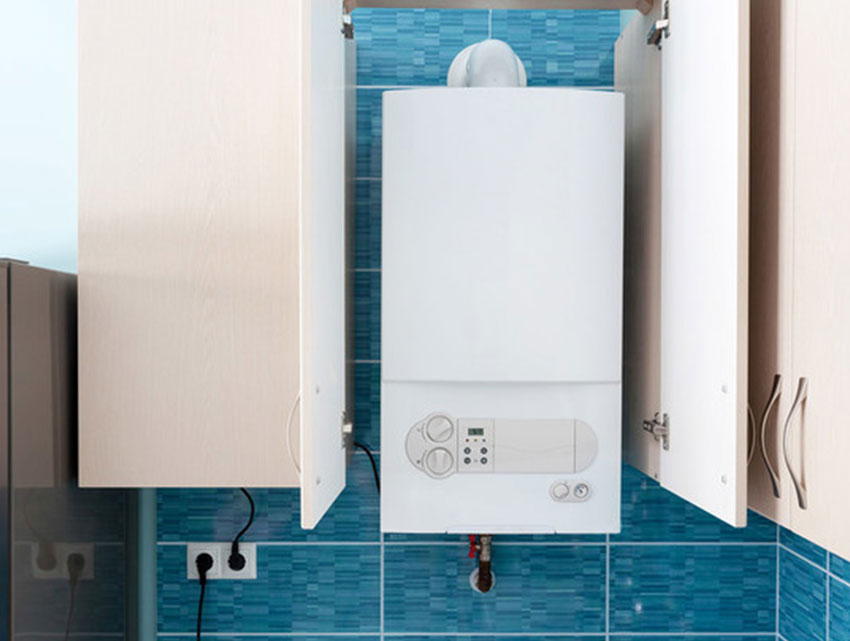
Gas storage water heaters
Although prohibited in new buildings, gas storage water heaters are still widely used to produce domestic hot water in older homes.
It works in the same way as the electric model: cold water gradually fills the tank and heats up as the stored hot water is used.
It is still the simplest way to obtain hot water quickly, which is very interesting for homes with a large surface area.
This system has many strengths.
Despite costing slightly more than electric water heaters, gas water heaters are still a worthwhile investment as they consume less energy than any electric equivalent.
Easy to install, it is still a bit cumbersome and requires a specific gas installation, as for the instantaneous water heater.
Annual maintenance is also required to check for scaling and corrosion of the tank.
The thermodynamic water heater
The thermodynamic water heater consists of a heat pump (PAC) and a hot water tank.
It works on the principle of aerothermy, i.e. it uses the energy of the calories in the indoor or outdoor air, thanks to a fan, to heat a heat transfer fluid.
This heat transfer fluid then returns the heat generated to the water tank to produce domestic hot water.
The cooled air is then evacuated from the home.
For optimal operation, the thermodynamic water heater must be installed in a temperate room, such as a laundry room, bathroom or garage.
If the temperature is below 5°C, an electric resistance takes over to supply the hot water tank.
In this case, the energy consumption of this type of appliance quickly becomes significant.
It is easy to install and does not require heavy work.
However, it must be installed in a room of at least 10 m2 for it to work properly.
Like most water heaters, it requires regular maintenance to prevent the risk of corrosion due to scale.
Once a year, a professional comes to check the pressure of the fluid, the cleaning of the filters, as well as the tightness of the circuit.
Although the purchase and installation price of a thermodynamic tank is relatively high (between 2,000 and 5,000 euros), it is still a profitable investment.
In fact, a thermodynamic water heater can reduce energy consumption by a factor of 3 or 4 compared to an electric water heater.
As part of an energy renovation, it is possible to benefit from financial aid from the State or local authorities, the amount of which varies according to the household’s income.
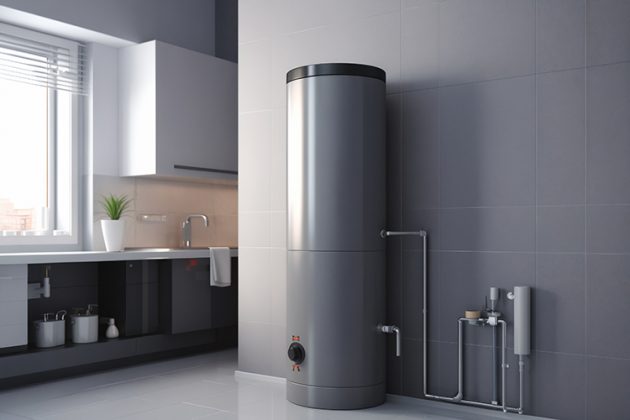
Solar water heaters
The solar water heater allows the water in a house to be heated using solar energy.
It consists of photovoltaic panels, generally installed on the roof of the house, and a water storage tank.
It uses the heat transfer fluid which transfers its heat to the domestic water stored in the tank.
The solar water heater has many advantages.
It allows you to cover at least 50% of your domestic hot water needs using renewable energy.
It is an ecological solution that limits its environmental impact.
In fact, solar energy is clean and non-polluting, producing very little waste and greenhouse gases.
The solar water heater is also an economical solution that can reduce your water bill by 60 to 70%.
However, it often has to be combined with another type of water heater to be able to benefit from domestic hot water all year round.
On the other hand, its purchase cost is relatively high because it requires the installation of solar panels and a specific hot water tank that is quite large for DHW production.
In addition, annual maintenance is recommended to ensure the longevity and optimal functioning of this system.
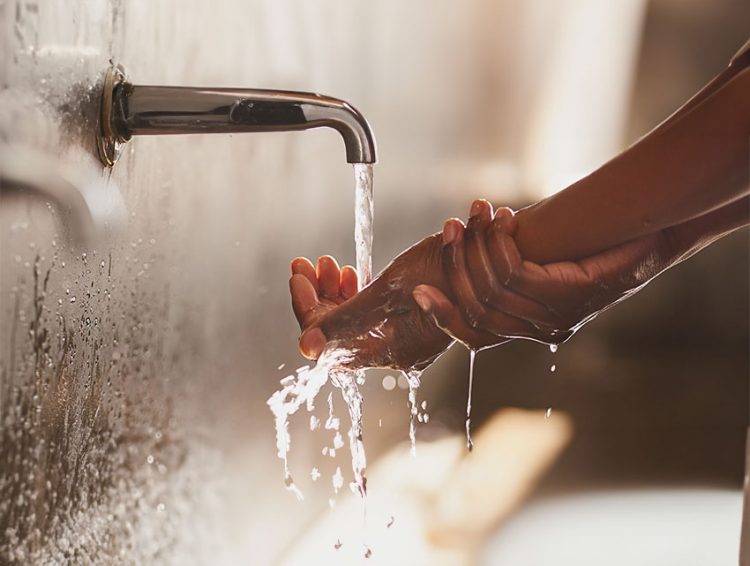
As you will have realised, choosing a water heater is not something you can improvise. It will depend mainly on your DHW requirements. The water heater’s capacity, performance and price are all criteria to consider before making a decision. The quality of the tank is also an important factor, as it will determine the longevity of your water heater and avoid any unpleasant surprises. In the case of non-ventilated indirect water heaters, manufacturers must carry out pressure tests in accordance with standard EN12897+A1. These tests, carried out on hydraulic test benches, guarantee the safe use and optimum operation of the product. So don’t hesitate to ask the advice of a qualified professional, who will help you choose a hot water tank that’s right for you.
complies with the standards in force.
Discover other articles and tips

What methods are used to test pipes in the building industry?
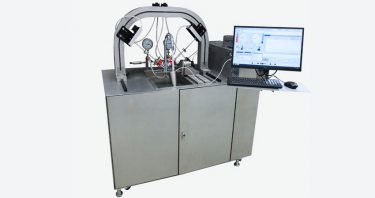
Who are the test benchusers?
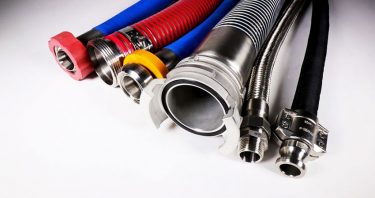
What are the most important tests on sanitary hoses ?
